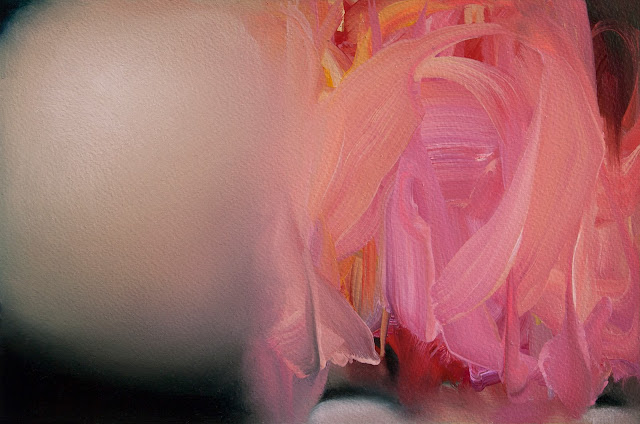Lost and Found
Its funny when you find something you did ages ago and forgotten. I found this on my You tube channel complete with short essay...
If people and their attachment to place is what makes a site a place as opposed to a space, what happens when the people leave? In my paper 'Should Simulated Environments When Used as Empathic Design Tools be Considered Spaces or Places?' I explored how sites are given meaning by people and their interactions with it.
One of the strands I looked at was how memory and place are intertwined. I photographed the house I grew up in, just before my family moved out of it. It is odd looking at images which for me are still loaded with meaning, knowing that for other people they mean nothing. For the guy that bought the house, this is how he found it when he moved in... so for him it is the point at which he started to create his own attachments and 'sense of place'.
I remember the epic task of stripping all the wood in the house when we first moved there... the smell of hot air strippers always reminds me of that... the funny people in the grain on the back of the bathroom door... would recognise that door anywhere... the ridge on the hallway wall... the view from my bed room window (later my sister's room where she carved her name in the window sill)... the marks on the door made by the dog... the kitchen table my sister drew a spider into... the same table on which we made hot cross buns whilst watching 'Born Free' on the tv... the pantry that was there and then knocked down...and how I made ginger beer that exploded and made everything in the pantry sticky... the arched window through which I tried to give my then very little sister a snow ball but dropped in down the back of the tv breaking it...
So I guess all these things do still exist, but only as Bachelard suggests in 'Poetics of Space' in our memories.... as for him a house is a container of memories. The sense of place that we who lived in the house made... each of us having our own particular sense of the place... are memories because we can't actually access the site.... if we could access the house, I guess some of the place attachment would remain even if the house is materially very changed.
If people and their attachment to place is what makes a site a place as opposed to a space, what happens when the people leave? In my paper 'Should Simulated Environments When Used as Empathic Design Tools be Considered Spaces or Places?' I explored how sites are given meaning by people and their interactions with it.
One of the strands I looked at was how memory and place are intertwined. I photographed the house I grew up in, just before my family moved out of it. It is odd looking at images which for me are still loaded with meaning, knowing that for other people they mean nothing. For the guy that bought the house, this is how he found it when he moved in... so for him it is the point at which he started to create his own attachments and 'sense of place'.
I remember the epic task of stripping all the wood in the house when we first moved there... the smell of hot air strippers always reminds me of that... the funny people in the grain on the back of the bathroom door... would recognise that door anywhere... the ridge on the hallway wall... the view from my bed room window (later my sister's room where she carved her name in the window sill)... the marks on the door made by the dog... the kitchen table my sister drew a spider into... the same table on which we made hot cross buns whilst watching 'Born Free' on the tv... the pantry that was there and then knocked down...and how I made ginger beer that exploded and made everything in the pantry sticky... the arched window through which I tried to give my then very little sister a snow ball but dropped in down the back of the tv breaking it...
So I guess all these things do still exist, but only as Bachelard suggests in 'Poetics of Space' in our memories.... as for him a house is a container of memories. The sense of place that we who lived in the house made... each of us having our own particular sense of the place... are memories because we can't actually access the site.... if we could access the house, I guess some of the place attachment would remain even if the house is materially very changed.

Comments
Post a Comment